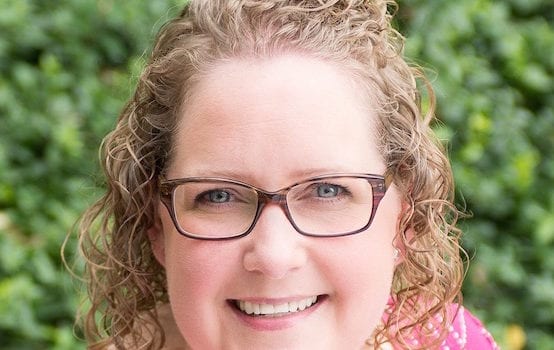
Tawny’s Memory Loss Was Linked to Her Liver Disease
Six years ago, things began to go from bad to worse for Tawny Blum (pictured above).
In her early thirties, Blum was already struggling to manage not one, but two rare liver diseases: primary sclerosing cholangitis (PSC) and primary biliary cholangitis (PBC). Tawny is among just a handful of people who have both conditions.
“You are supposed to be having the time of your life in your twenties and thirties,” says Blum, who was diagnosed with PSC in 1997 and PBC in 2010. “Most of my time was spent at doctors’ appointments, sleeping or in the hospital.”
In 2012, Blum also began forgetting things — a lot — which made it even harder for her to handle her job as a case manager for adults with developmental disabilities. Her fatigue grew worse, and she began slurring her words and repeating herself.
“I was forgetting everything at work,” recalls Blum, a social worker by training who had long prided herself on attention to detail. “I also went from sleeping on the weekends to needing to sleep from the minute I got home until I left for work the next morning.”
Well-meaning friends and family members tried to console her by downplaying her memory lapses: “People used to say to me: ‘Oh Tawny, everybody forgets,’” notes Blum. She recalls thinking: Not like this. And it turned out she was right.
Shining a Light on Hepatic Encephalopathy
Blum was eventually diagnosed with hepatic encephalopathy (HE)—a condition that causes temporary worsening of brain function in people with advanced liver disease.
HE occurs when the liver is damaged causing a reduction in the body’s ability to remove toxic substances from your blood. As the toxins increase, they can affect brain function causing a variety of mental and physical symptoms. HE symptoms can range from mild to severe confusion, fatigue, tremors, progressive disorientation, and coma if not recognized and treated. The condition is serious, but treatable, especially if caught early and treated promptly.
Blum doesn’t recall exactly when she was diagnosed with HE, but says she suffered for months, if not years, before she finally decided to speak to doctors about her memory lapses and other issues that she would later learn are symptoms of the condition.
Her gastroenterologist, in consultation with her hepatologist, made the diagnosis based largely on her symptoms, according to Blum, who says she would have likely been diagnosed and treated earlier had she known she was at risk for HE.
Blum says she had never heard of the condition before her diagnosis, and her family members were in the dark too.
“If I knew more about HE, I could have asked more questions, and my family would have been aware that I was experiencing symptoms of HE,” she says.
“But I didn’t know anything about HE. That’s what has motivated me to be an advocate” for HE patients, adds Blum, who has sought to raise awareness about the condition through her volunteer work with the American Liver Foundation (ALF).
A Downward Spiral
The condition, she says, eventually robbed her of her independence. By the time Blum began talking to her hepatologist about a liver transplant, she had stopped working, moved back home with her parents and given up driving because of her memory lapses. She worried that, by continuing to drive, she might endanger herself and others.
“Things were slow to progress in the beginning with HE, but once things started getting bad, they got bad really fast,” says Blum, who became completely dependent on her parents for care.
“I got to the point where I was sleeping 24/7,” she recalls. “My parents had to wake me up for meals or to take my meds.”
After being diagnosed with HE, Blum was prescribed a specific antibiotic and lactulose, which helped rid her body of toxins, but also caused frequent bowl movements. To tolerate the taste of lactulose, she mixed it with Gatorade. She also made sure she was never far from a bathroom after taking her meds, which meant spending even more time at home.
“There were days when I didn’t go far from the bathroom, let alone leave the house,” recalls Blum.
The medicines, she adds, helped lessen her confusion and may have ultimately helped save her life, which is why she urges HE patients to resist the temptation to skip their medications because of the potential side effects. Usually the side effects can be managed and will eventually have less impact on patient’s life, especially when used with the antibiotic.
The Gift of Life
Three years ago, Blum received a living-donor liver transplant. Her sister was the donor. Since then, her health has improved dramatically, and she has begun to enjoy life again. As with many patients with HE, sometimes treatment of the underlying liver disease requires a liver transplant.
But she is still has memory issues — which she calls a residual effect of HE — and health problems that make her unable to return to paid work. Some studies suggest earlier recognition and treatment of HE can reduce the residual memory issues making awareness, recognition and early treatment of HE so important.
For now, though, she finds happiness and contentment in volunteer activities. In addition to serving as an ALF patient advocate, Blum is an advocate for organ donation. As a volunteer with Donate Life Wisconsin, she speaks to teens in driver-education classes, sharing her inspirational story as well as facts about organ donation.
“Being able to give back is what makes me happy,” says Blum. “It’s what I love to do.”
What advice does she have for those at risk of HE?
Learn about condition and encourage family members to do the same, says Blum. If you begin to experience symptoms of HE, be sure to document them and seek medical attention immediately, she adds.
To learn more about the condition, be sure to check out the ALF’s HE Information Center and its Q&A with Dr. Rockford “Rocky” G. Yapp. HE patients and their caregivers may also want to watch an ALF’s video featuring HE patients providing advice and support.
“I wish I had known HE is a real thing; That I wasn’t losing my mind,” says Blum.
Last Updated on May 20, 2020
Share this page






